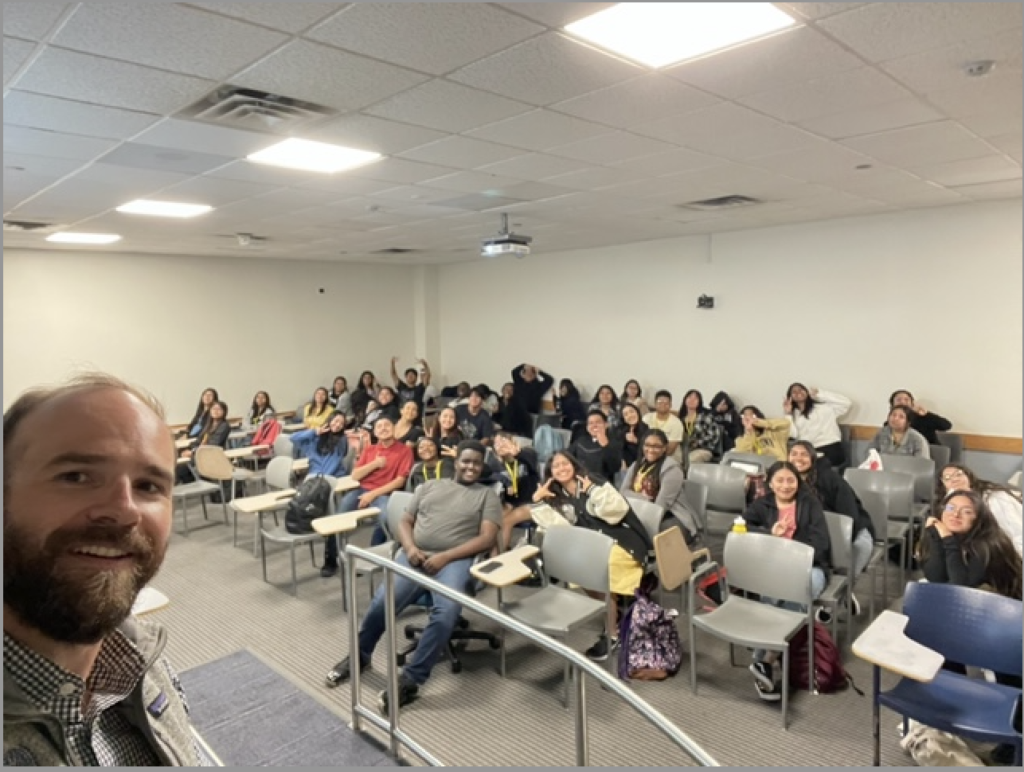Being a Jesuit and Catholic University, Georgetown belongs to a national and global network of colleges and universities that are united in a common purpose. While each particular school context is unique, there is a shared heritage across the institutions rooted in Ignatian principles and values. Every now and then it is important for participating schools to enter into a reflective process about how Jesuit mission and values are coming to life in special and characteristic ways at these particular places. In the United States, the Association of Jesuit Colleges and Universities (AJCU) sponsors a process called “The Mission Priority Examen (MPE)” in order to reflect as a network on the Jesuit characteristics of individual institutions. With the support of partners in Jesuit higher education and the governance of the Jesuits, the MPE process helps schools discern where to focus their mission energies into the future. Each AJCU member institution goes through the process every seven years.
Georgetown President DeGioia recently announced that the University is undergoing the MPE process this academic year. The basis for the MPE, which is intentionally situated more as an examen (learn more about this Jesuit spiritual practice) and less as a formal accreditation methodology, are some core Jesuit sources: “Characteristics of Jesuit Higher Education” and “Universal Apostolic Preferences.” The seven characteristics are intended to reflectively consider all aspects of the University’s life, culture, operations, and impact. The uniting theme that brings these characteristics together is a recognition of gratitude for the centuries-old tradition of Jesuit education and a hope that such a mission-committed foundation will be realized into the future. The Universal Apostolic Preferences, described in this earlier post, are anchoring orientations of all Jesuit works across the world. Of special importance to Georgetown’s self-reflection as a university is its commitment to “Journeying with Youth: Accompany Young People in the Creation of a Hope-Filled Future.”
My hope is to encourage more reflection in the SCS community about the MPE process and encourage more sharing about how Georgetown might grow in mission effectiveness in its work of student formation, interreligious dialogue, Ignatian spirituality, inclusive community, and global engagement. There are two primary ways to add your voice to this conversation:
- All members of the SCS community should consider sharing their feedback via this University survey.
- Current SCS students are invited to participate in a live conversation during the month of October with SCS Associate Director for Mission Integration, Jamie Kralovec (i.e., me). Please reach out to Jamie if you are interested in joining this discussion.
Mission in Motion was created to shine a spotlight on the many ways that SCS lives out its Jesuit mission and values in ways that are distinctive. SCS has played an important role in bringing the Jesuit heritage to life in curriculum design, technologically enabled learning, global engagement and service, community partnerships, and much more. This is an important moment for the SCS community to reflect not only on the strengths of these various efforts but also on how the School can further deepen its commitment to mission effectiveness. I hope you will join in the process!



